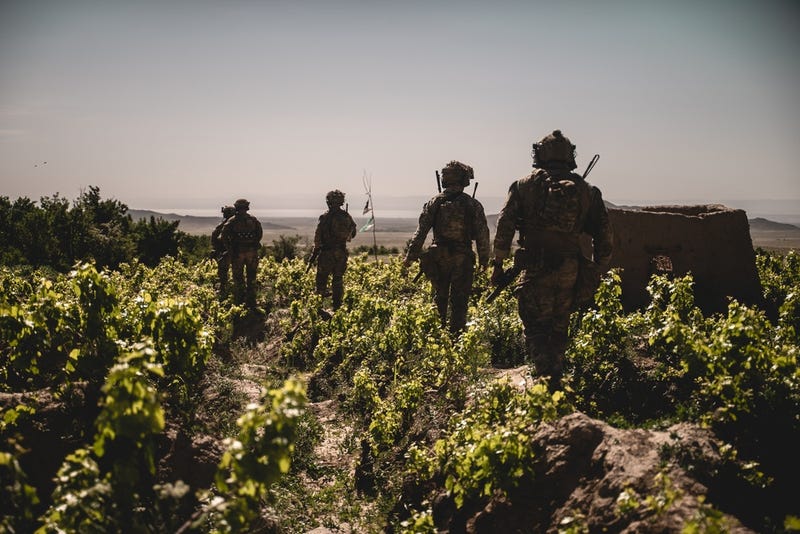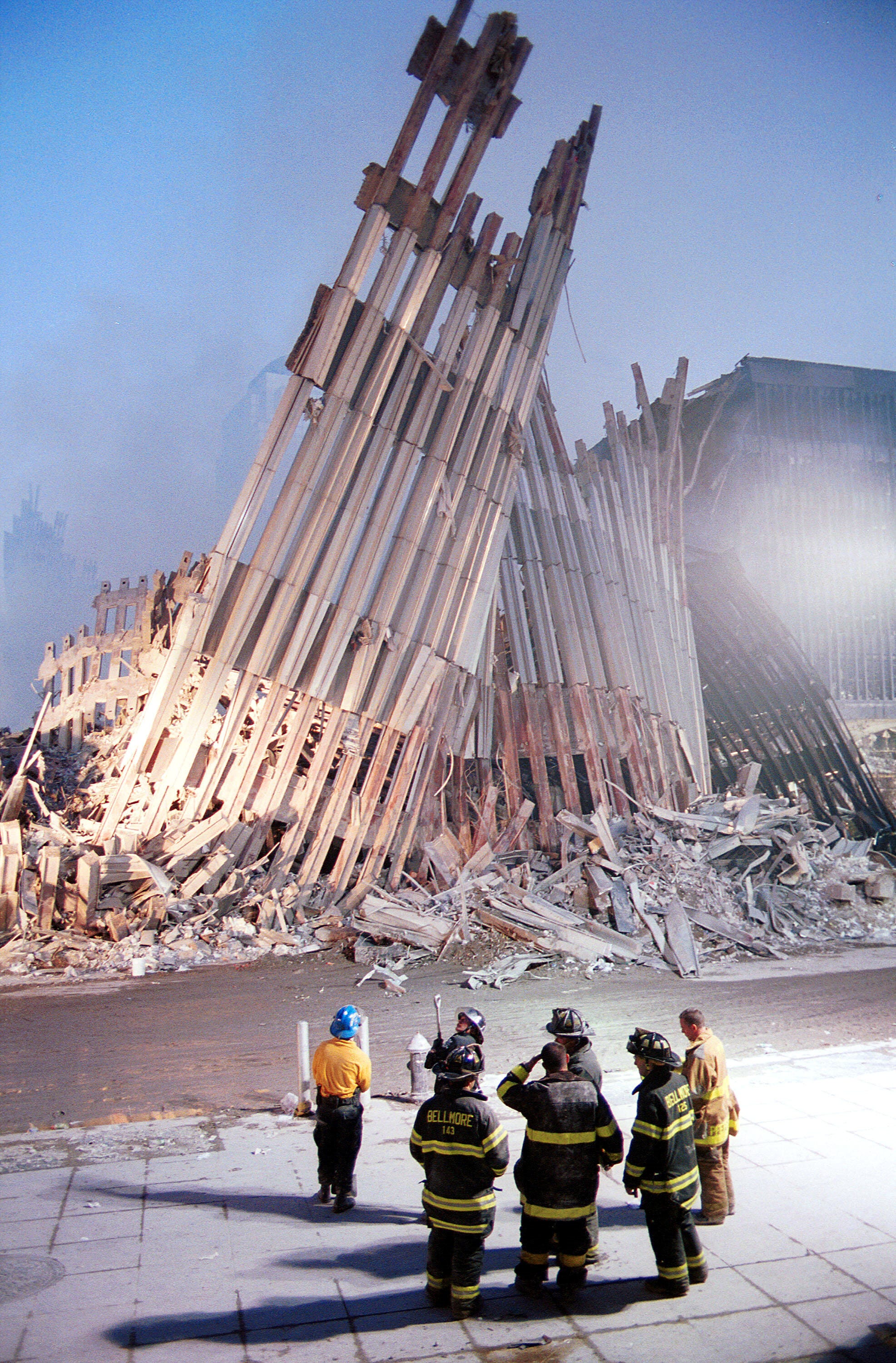
On the twentieth anniversary of the 9/11 attacks, Connecting Vets reached out to veterans of America's elite 75th Ranger Regiment to hear where they were when they learned that America was under attack, and how it inspired them to serve.
Listen to your favorite News/Talk station now on Audacy
Jeremiah Dagel was playing football at Bemidji State University while studying industrial technology and construction management. He was enjoying his time there, with little to worry about until the morning of September 11, 2001.
"That morning I walked into Bridgeman Hall, the Industrial Technology department, for my first class of the day when I saw a group of people standing around the reception desk looking up at a TV in the corner of the office," Dagel recalled.
"It showed the first tower on fire with smoke pouring out," while the caption on the screen said a plane had crashed into the World Trade Center.
He stood there watching and trying to understand what was happening when suddenly another aircraft struck the second tower.
"I didn't comprehend right away what had happened and thought that they must be playing a replay of the first crash but then someone in the crowd shrieked out and my brain began to process what was going on," he said. This was the moment he knew America was under attack.
Far away from both Minnesota and New York, a teenager in California watched the towers fall on his 19th birthday.
"I was confused. Why was this happening?" Leo Jenkins asked himself. He drove over to the Glendale Fire Academy which he was attending at the time, but the students were sent home for the day. He went home and watched television news with his father who had just finished his shift at the fire department.

"The news posted a picture of Osama Bin Laden, identifying him as the person responsible. [The need for] vengeance was all I felt," Jenkins remembered. "I was 19 and filled with much more aggression than logic. I wanted vengeance. I wanted to murder those murderers."
Meanwhile, Dagel told his father, a Vietnam veteran, he wanted to enlist immediately. His dad advised him to finish his college degree as he only had one more year of school and then would have something to fall back on.
"This isn't going to be over quickly and you will have plenty of time to be a part of this," his dad said.
Dagel enlisted in December of 2002, turning down tryout offers to play football for the Denver Broncos and Minnesota Vikings. He then turned down a commission in the Army so he could go straight to the Ranger Indoctrination Program (RIP).
"I didn't care if someone saluted me, I just wanted to kick in doors and be on the front lines hunting down terrorists," Dagel told Connecting Vets.
Jenkins also did not join immediately. He graduated from the fire academy and took a job with a small rural department in Arizona. But as the war progressed, and the military invaded Afghanistan images of soldiers at war flashed on the television screen.
"I didn't understand this, except it must have something to do with the U.S. being attacked. I felt guilt and responsibility," Jenkins remembered. Although he had his dream job as a firefighter, he felt like he had not earned it, especially when so many men and women were serving in combat abroad.
Since he had EMT training, he enlisted as a medic. The invasion of Iraq happened while he was in basic training. He went on to serve in two deployments to Afghanistan and one to Iraq as a combat medic with the 3rd Ranger Battalion.
Dagel, who was also assigned to the 3rd Ranger Battalion, deployed twice to Iraq and twice to Afghanistan. "I spent the next four years running, gunning, jumping out of planes, fast-roping out of helicopters and hunting down the world's most dangerous terrorists with one of the Army's most elite fighting forces; and enjoyed every second of it!" he said.
"It was one of the greatest honors of my life to serve in the 75th Ranger Regiment," the football player turned Ranger said.
"It will never be over over in Afghanistan, in my opinion," Dagel said about the conflict officially came on Aug. 31. "I don’t have an issue with 'officially' pulling out of Afghanistan, but I feel like the manner in which it was executed was wrong on multiple levels and it has left a lot of Afghanistan vets angry."
"For nearly my entire enlistment, I continued to ask the same question I had on the morning of September 11th, 2001, why is this happening?" Jenkins said.
After his military service, Jenkins took to academic studies to try to find answers.
"As the global war on a malleable ideology evolves into a new phase," he said, "I watch from the lens of a man nearing 40 and ask, 'What can I do to end this cycle of rhetoric and vengeance?'"
Want to get more connected to the stories and resources Connecting Vets has to offer? Click here to sign up for our weekly newsletter.
Reach Jack Murphy: jack@connectingvets.com or @JackMurphyRGR.
LISTEN on the Audacy App
Sign Up and Follow Audacy
Facebook | Twitter | Instagram



